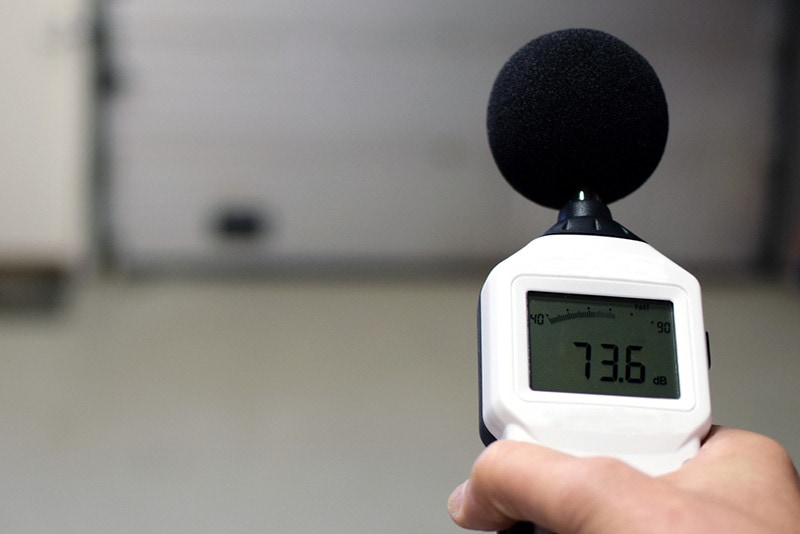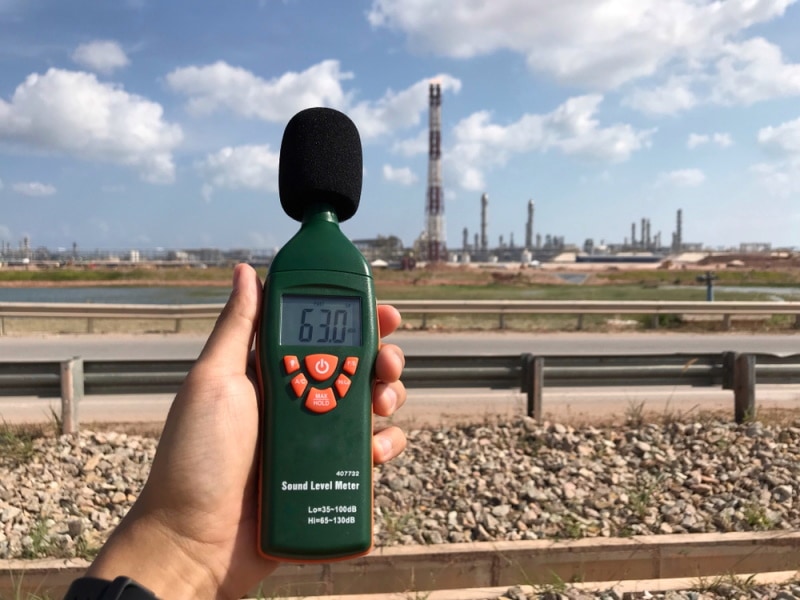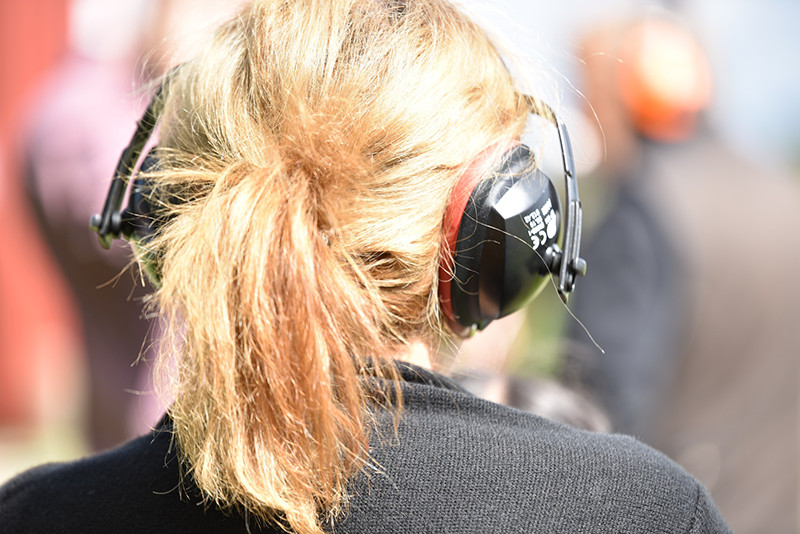How Loud is 140 Decibels (dB)? (With Noise Comparison Chart)
-
Codee Chessher
- Last updated:

We’re all exposed to our fair share of loud noises throughout the day, and most people never stop to think about just how loud some of those noises are. What’s a decibel, anyway, and how loud are some of the noises we hear daily?
Well, 140 decibels (dB), for instance, is about as loud as a firecracker, gunshot, or jet engine at point-blank distance. Basically, 140 dB means a noise is one of the loudest noises possible on Earth. As you may imagine, that’s definitely loud enough to damage your hearing.
In this article, we’ll be covering what decibels are, why they matter, and how loud some common noises are in decibels. Let’s dive in below.
What Is a Decibel (dB)?
A decibel is a universally agreed-upon method of measuring sound. Decibels are measured by a sound’s intensity as determined by the amount of sound energy it creates. A typical person’s breathing, for example, measures a mere 10 dB. A regular conversation can vary from 40–60 dB, depending on how loudly the people are speaking.
Every decibel means an increase in a sound’s power by 10. Twelve dB, for instance, is 10 times louder than 11 dB. On the other hand, 39 dB is 10 times softer than 40 dB. Generally speaking, sounds above 60 dB are uncomfortable for the average person to hear, and may even cause hearing loss, which we’re about to cover below.

How Loud Does a Noise Need to Be to Cause Hearing Loss?
Hearing loss is a funny thing. Some people live their entire lives without suffering hearing damage and then a single event damages it, or repeated exposure to loud noises can build up over time and cause it. Generally, repeated exposure to noises over 60 dB can cause hearing damage.
At 80 dB and above, things get worse. Noises may be physically uncomfortable, but you can withstand them for short periods of time, like a gas-powered lawn mower or subway train. Many people experience noises of this magnitude daily without wearing hearing protection, but they probably should! Repeatedly hearing noises of 80 dB and above is nearly guaranteed to cause hearing damage over time.
At more than 80 dB, noises are acutely painful and can cause instant, irreversible hearing damage. Examples include a jet engine firing up and a gunshot, both of which require hearing protection to be near.

Noise Comparison Chart
We briefly mentioned a few noises and how loud they are, but it can be difficult to get an idea of how those noises compare. Let’s check out a comparative chart of some common noises and approximately how many decibels they measure.
| Noise Type | Approximate Noise Level in Decibels (dB) |
| Normal human breathing | 10 dB |
| Ticking watch | 20 dB |
| Whisper | 30 dB |
| Normal conversation | 40–60 dB |
| Air conditioner hum | 60 dB |
| Dishwasher | 60 dB |
| Blender | 85 dB |
| Lawnmower | 80–90 dB |
| Jet engine | 140 dB |
How to Protect Your Hearing
Hearing damage is an unfortunate part of life that we can’t always avoid, but we can take certain measures to reduce the impact of loud noises. By strategically using these tips, you can help prevent hearing loss and damage.

How to Protect Your Hearing Tips:
- Turn the volume down slightly when listening to music.
- Have a hearing exam done every 10 years and annually after age 60.
- Wear hearing protection near loud noises, like gunshots, speakers, industrial equipment, etc.
- If you can’t avoid spending time around loud noises, try to limit your time spent near them.
- After shooting guns, attending a loud concert, or other loud noises, give your ears time to recover in a quiet environment.
 Conclusion
Conclusion
Hearing damage is serious, and 140 dB is easily loud enough to damage your hearing—it’s as loud as a jet engine! By wearing hearing protection when you’re around loud noise and limiting time spent around loud noise, you can help prevent hearing damage later in life.
Related Reads:
Featured Image Credit: aappp, Shutterstock
Contents
